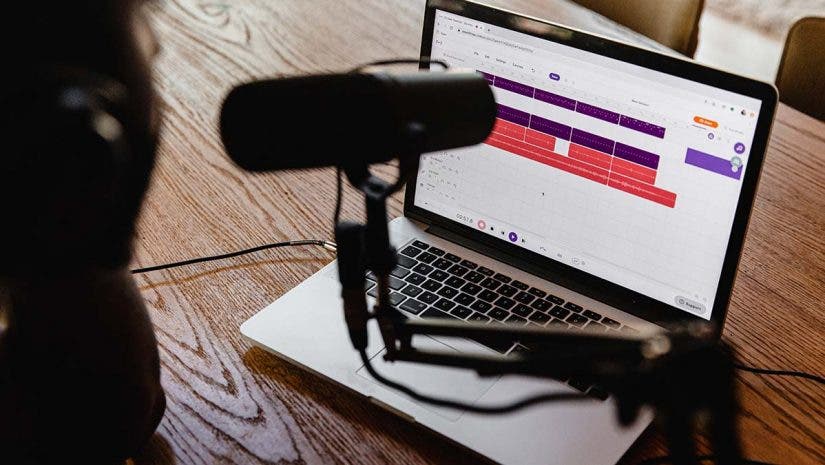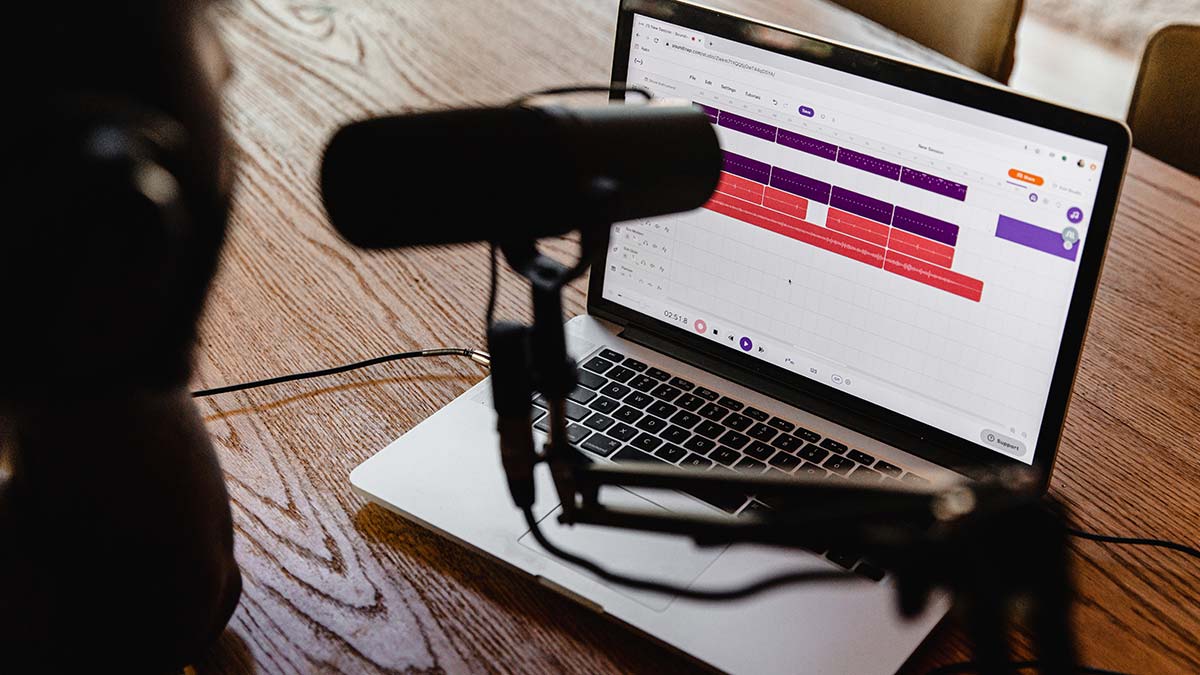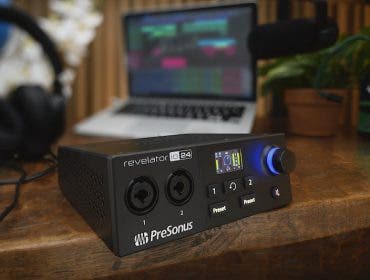So, you’ve decided to start your own podcast. That’s great! The popularity of podcasts is steadily rising, and there’s no shortage of people looking for interesting topics to learn about. But before you take the leap and start babbling into your microphone, you should make a plan and create at least an outline for a podcast script.
You don’t need to read from a teleprompter, but it’s best to have a direction before you begin. If you’re a beginner podcast host, this podcast scriptwriting guide will help. You’ll also see how to build a podcast script template that you can apply to future episodes to make recording your show as simple as possible.
How to Write a Podcast Script
1. Start With A Strong Intro
Every good podcast script should begin with an engaging introduction. You want to make it clear to your audience who they’re listening to and give them a hint about what they should expect from the episode. The podcast intro is the perfect time to briefly talk about the host and co-host, the episode topic, and the name of any guest speakers.
You can make a special introduction message for each podcast episode or record a standard message covering your primary topic. For example, if you always talk about murder mysteries, you can say so in a generic intro. However, if you talk about a wider range of subjects, it may make sense to record a specific introduction to prepare your listener for what’s to come.
2. Guest Introduction
Follow the episode intro with a flattering introduction of your guests. Make sure you highlight who you’re speaking with, what they do, and tell the audience why they should care. Mentioning notable achievements is a good start.
If your guest is promoting something like a new book, TV show, or product, you can mention it briefly, but make sure you leave a chance for your guest to speak about it during the show. Plan to give them a segue that allows them to elaborate later.

3. Time Your Segments
Speaking of segues, a well-planned podcast will have multiple segments with smooth transitions. Some podcast hosts will use timed sound effects that signal when it’s time to move to the next part of the show. This tactic is handy if you prefer looser show notes that allow for ad-libbing and don’t like to read word-for-word from a script.
4. Keep Track of Talking Points
It’s a good idea to make a list of questions ahead of the show. You can list your ideas in bullet points to help you think of questions that align with the episode’s theme. It’s also important to leave room for the conversation to progress naturally. And don’t be afraid to ask questions that aren’t on your list as long as they line up with your initial talking points.
Sticking to a rigid script can make the host sound disinterested in the conversation. To create a great podcast episode, you need to master the delicate balance of staying on topic and keeping the conversation flowing. However, when you build your list of questions, assign approximate discussion times to each. Then make sure all the times add up to the full length of your episode.
5. Don’t Forget The Sponsor Message
If you figured out how to get a podcast sponsor, the last thing you want to do is forget to mention them during the show. You’ll never have this problem if you script and schedule your sponsor spots.
Make sure to include the company’s essential talking points, and a clear call to action (CTA). To avoid tarnishing your integrity, stick with sponsors you believe in who sell products that will benefit your audience. Pitching products that won’t help listeners won’t win you any loyalty.
6. Wrap With An Outro
The best podcast episodes always end with closing remarks that conclude the conversation. The host should give a brief recap of what we learned and a summary of any crucial takeaways. Don’t forget to thank your guest for their time. If they have a product to plug, remind the audience of where they can find it.
Finally, give the audience a taste of what’s to come. You could tell them what the next episode will be about or who will join you for the next conversation. At the very least, remind them to come back next week for another installment of your podcast.
Once you’ve solidified all of these podcast script best practices, you’ll be able to make money podcasting in no time!
Feature photo by Soundtrap on Unsplash






